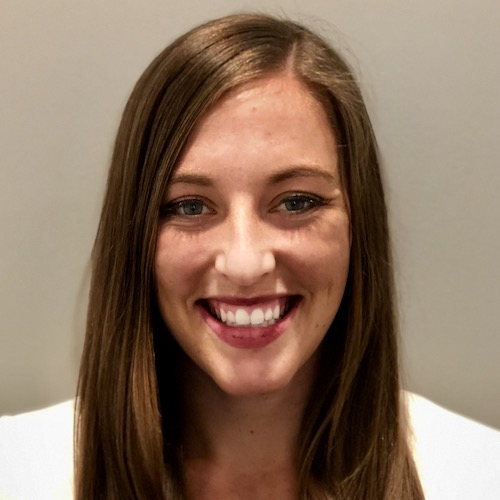Taking a year off between the end of your undergraduate education and the beginning of medical school can give you an opportunity to get some experience in the healthcare field while building up your savings account.
In addition, working healthcare-related jobs can improve your chances of getting into med school.
Some examples of good jobs during premed or during a med school gap year include medical assisting, medical research, emergency medical technician, and humanitarian aid.
This guide goes over the best jobs to take during premed or in a med school gap year as well as how to make the most of your gap year.
Best Jobs for Premed Students & Gap Year Before Med School
The best jobs for premed students are healthcare jobs that don't require a college degree and offer opportunities to work with patients, practice medical language, and solidify your understanding of basic healthcare concepts.
We go over some of these jobs below. Unless otherwise noted, data is from the Bureau of Labor Statistics.
Medical Assistant
A medical assistant is someone who works in a healthcare facility, usually a clinic or doctors office and helps care for patients and keep the office organized.
They perform basic clinical tasks like drawing blood and taking vital signs, as well as administrative tasks like handling billing and scheduling appointments.
Medical assisting is great for aspiring med school students. Medical assistants learn a lot about common health conditions, basic laboratory tests, and bedside procedures.
- Median salary: $42,016
- Number of jobs in the US: 783,900
- Education required: High school diploma or GED required, medical assistant certification preferred
Patient Care Technician
Becoming a patient care technician is one of the best ways to get experience before medical school. Patient care technicians work in hospitals, clinics, surgical centers, and long-term care areas.
Patient care technicians can assist physicians with procedures, help patients with their activities of daily living, measure vital signs, and much more. Not only do PCTs get a lot of patient care experience, but they also learn a lot of medical terminology and get to work closely with doctors and surgeons on a daily basis.
- Median salary: $39,430
- Number of jobs in the US: 1,469,400
- Education required: High school diploma or GED required, certification preferred
Dental Assistant
Dental assistants are often confused with dental hygienists. While hygienists have to complete several years of schooling, dental assistants can get a job and start working after just a few weeks of training.
Dental assistants handle both administrative and patient care tasks in a dentist’s office. They can help with taking X-rays, scheduling patients, and getting them checked in, and assist with procedures such as extractions and fillings.
- Median salary: $47,300
- Number of jobs in the US: 376,500
- Education required: High school diploma or GED required, certification preferred
Medical Administrative Assistant
Also called medical office assistants, medical administrative assistants schedule appointments, assist with billing and insurance, answer phone calls, and keep supplies organized. They have to have a good working knowledge of medical terminology, healthcare law and ethics, medical documentation, and computer systems.
- Median salary: $40,640
- Number of jobs in the US: 749,500
- Education required: High school diploma or GED required, certification preferred
Medical Receptionist
Medical receptionists usually work in the front office of a healthcare facility. They help get patients scheduled for appointments, set up care coordination between specialties, and manage billing and insurance claims.
Medical receptionists are also known as medical administrative assistants and can earn a certification to help them better prepare for their jobs. Medical receptionists need to have a solid understanding of medical terminology, patient privacy laws, healthcare ethics, and medical billing and coding.
- Median salary: $40,640
- Number of jobs in the US: 749,500
- Education required: High school diploma or GED required, certification preferred
Surgical Technician
Surgical technicians work alongside surgeons as they perform procedures. Surgical technologists are responsible for preparing sterile instruments and handing those tools to the surgeon as they work.
They may also suction blood from the patient and hold traction, meaning they hold skin, bones, or organs out of the way to give a better view of the surgical field.
Surgical technicians must also pay close attention to make sure that everyone working on the patient in the operating room remains sterile during the procedure. They also keep count of each stitch, gauze, and surgical tool used during the operation to make sure that nothing is left inside the patient at the end of surgery.
If you want to become a surgeon one day, working as a surgical tech during premed or during a med school gap year is a great choice.
- Median salary: $62,830
- Number of jobs in the US: 113,890
- Education required: Certificate or associate degree
Anesthesia Monitoring Technician
Anesthesia monitoring technicians work in operating rooms and critical care areas. Their main responsibilities include helping to secure a patient's airway while an anesthesiologist places an endotracheal tube, as well as placing and monitoring arterial lines.
Anesthesia monitoring technicians learn a lot about how an operating room functions and how to manage critically ill patients. They often measure and can interpret arterial blood gases that can guide the treatment of patients undergoing surgery.
- Median salary: $62,480
- Number of jobs in the US: 134,000
- Education required: High school diploma or GED and certification required
Recreational Therapy Aide
Recreation therapy is one of the most fun and rewarding jobs available to healthcare workers. Recreational therapists can include music therapy, games, play therapy, and more.
Recreational therapy aides help patients or long-term care residents participate in activities such as singing songs, making crafts, completing art projects, and playing games. Aides work closely with licensed recreational therapists to make sure that patients get the most benefit from their time and that all activities are appropriate for the patients.
- Median salary: $37,370
- Number of jobs in the US: 52,100
- Education required: High school diploma or GED
Certified Nursing Assistant
Certified nursing assistants usually work in long term care facilities and hospitals. They often care for patients who need help with activities of daily living like getting to the bathroom, brushing their teeth, and eating meals.
Certified nursing assistants do a lot of physical labor, like lifting patients out of bed and carrying heavy hospital equipment. In some states, CNAs can learn to insert IV catheters and help with sterile dressing changes.
- Median salary: $39,530
- Number of jobs in the US: 1,388,430
- Education required: Certification required
Emergency Medical Technician
Emergency medical technicians are first responders who usually work in an ambulance, responding to emergency medical calls and transporting patients between medical facilities.
Emergency Medical Technicians can do things like take vital signs, measure blood sugar levels, give injections, and perform CPR. In some states, emergency medical technicians are trained to give intranasal naloxone to treat opioid overdose.
- Median salary: $41,340
- Number of jobs in the US: 177,980
- Education required: Certification required
Phlebotomist
A phlebotomist specializes in collecting blood samples for laboratory testing. Phlebotomists can work in hospitals, clinics, and outpatient centers. Phlebotomists must learn good techniques to avoid causing injury or infection and prevent contamination of their samples.
- Median salary: $43,660
- Number of jobs in the US: 138,880
- Education required: High school diploma or GED required, certification preferred
Hospital Volunteer
While it won't help you build your savings account, volunteering at a hospital can give you great experience working with patients, becoming familiar with hospital systems, and help you give back to the community.
Hospital volunteers can do anything from greeting patients, keeping hospital grounds clean, and holding NICU babies while their parents are away.
- Average salary: $0
- Education required: None
Home Health Aide
Home health aides travel to patients in their homes to help with basic tasks such as bathing, grooming, and eating. Home health aides may also change simple bandages and measure vital signs during their time with the patient.
Home health aides usually work without any other healthcare providers present, meaning they have to use critical thinking skills and know how to respond in case of an emergency.
- Median salary: $34,900
- Number of jobs in the US: 3,961,900
- Education required: High school diploma or GED
Hospice Aide
A hospice aide is someone who takes care of people at the end of their lives. Hospice aides focus on keeping their patients calm and comfortable in their last weeks, days, or hours before death.
Hospice aides must learn to have a fantastic bedside manner and excellent communication skills. Hospice aides have a difficult, but extremely meaningful job.
- Median salary: $34,900
- Number of jobs in the US: 3,961,900
- Education required: High school diploma or GED
Medical Scribe
Medical scribing is one of the lowest-stress healthcare jobs available. Scribes help physicians stay organized and keeps patient charts up-to-date. Medical scribes often document patient-physician encounters in real-time, making sure that each part of a procedure or examination is documented accurately.
Medical scribes become familiar with medical language and learn about each step involved in many common procedures.
- Median salary: $37,550
- Number of jobs in the US: 54,500
- Education required: High school diploma or GED required, certification preferred
Physical Therapy Assistant
Physical therapy assistants can work in home health, hospitals, or physical therapy offices. They work with physical therapists to help injured or weak patients gain strength and mobility.
Physical therapy assistants can help with a range of motion exercises, apply electrostimulation, and help give massages.
- Median salary: $65,510
- Number of jobs in the US: 108,010
- Education required: High school diploma or GED required, associate degree preferred
How Working in Healthcare Can Help You Get Into Med School
Working in healthcare gives you a solid base to build your education on. Getting some experience can help give you a reference point for more complicated information you will learn in medical school, and improve your chances of being accepted into the medical program of your dreams.
Some of the benefits of working in healthcare during your gap year include:
- Get used to medical language. Healthcare providers have to understand and use correct medical terminology to prevent miscommunication and potentially harmful mistakes. Just like learning a foreign language, the more exposure you have to medical terminology, the easier it will get.
- Improve your bedside manner. Working in healthcare means you might interact with people during one of the most vulnerable times in their life. It takes practice to feel comfortable talking patients through invasive procedures, discussing life-changing diagnoses, and knowing how to deliver difficult news.
- Get comfortable with body fluids. If you are planning to go to medical school, you will need to get comfortable dealing with blood, pus, sputum, urine, and stool. You will also have to get comfortable talking about and safely examining all parts of the body, including genitals and other private parts.
- Improve your resume. One of the main reasons many people get a job during their gap year is to add experience to their resume. In addition to a healthcare job, you might want to get hours shadowing a physician or doing volunteer work in a healthcare facility.
- Build relationships. When you apply to medical school, you will need some strong letters of recommendation. Working in healthcare during your gap year gives you the opportunity to build relationships with advanced healthcare providers who can recommend you for medical school.
- Experience helps with memorization. During medical school, you will have to memorize disease names, anatomy, medical terminology, laboratory values, and much more. Having some exposure and real-life experience to draw on will make it easier to remember things you learn during school.
- Ensure you are ready to commit to medicine. Medical school is a huge commitment. It is a smart choice to get some real-life experience in healthcare to make sure that medicine is where you want to be. While the medical field is an exciting and rewarding career choice, it can also be challenging. Working in healthcare before you start can help you solidify your decision to become a doctor.
Tips for Getting a Job During Pre-Med or During a Med School Gap Year
Regardless of if you are looking for a healthcare job during your undergraduate time or are taking a med school gap year, there are certain ways to improve your chances of landing a job.
Being smart about the application and interview process will give you the best chance of landing the perfect healthcare job for your gap year or during undergrad.
Here are some tips for getting a job during these times:
- Craft a strong resume. Even if you do not have a lot of work experience, you can still create a good resume. Highlight challenging courses you completed or extracurricular activities you have been involved in during your school years. You can also include any awards, excellent grades, or service projects you have worked on as part of your resume.
- Write a meaningful cover letter. When you apply for a job, write a concise but passionate cover letter about why you want to work in healthcare. Many employers will hire a passionate job candidate over someone who is experienced but apathetic about the job.
- Recommendations from professors. Try to get a strong letter of recommendation from one of your undergraduate professors. Choose a professor who knows you personally, and give them plenty of time to complete your letter.
- Prepare for the interview. Practice answering interview questions with a friend before you head in for your real interview. Having a few answers to common interview questions ready can help you feel less nervous when the big day comes.
- Brag about your medical education. If you are in a gap year, chances are that you have taken a few science or healthcare courses. Make sure to at least include those on your resume, and talk about what you learned from the classes during your interview.
Why Taking a Gap Year Before Med School Can Be Beneficial
You may think that skipping a gap year and heading straight from undergraduate work into medical school is a good way to save time and get to your doctorate degree faster. However, there are some benefits to taking a gap year before med school.
- Prepare for MCAT. The Medical College Admissions Test (MCAT) is one of the most difficult graduate entrance exams in North America, and repeat attempts are limited. Getting a high MCAT score significantly increases your chances of being accepted into medical school. You want to make sure that you are well-prepared before you sit for your MCAT.
- Gain clinical experience. Clinical experience is not only a requirement for most medical schools, it will help you feel more confident in your healthcare knowledge and ability to work with patients.
- Strengthen your application otherwise. Besides getting a job in healthcare, a gap year gives you time to add extracurricular activities, service work, and extra certifications to your resume, all of which can strengthen your application to medical school. While clinical experience is most important, demonstrating diverse interests can help you stand out as a well-rounded applicant.
- Save some money. It is no secret that medical school is expensive and time-consuming. Taking a year off from school to work and save money can make a big difference to your bank account in the long run.
- Take a break from schooling. Medical school can be extremely taxing. When you finish your undergraduate degree, you might want to take a break from school to recharge your batteries before taking on the next challenge.
- Build healthy habits. A gap year is a great time to get your life organized before you start medical school. Spending a year building healthy habits like eating well, prioritizing sleep, and exercising can set you up for success once you start med school.
Deciding Which Job During Pre-Med or During a Med School Gap Year is Best for You
There are several factors you should consider when choosing between jobs during pre-med or your gap year. The most important thing is to choose something that genuinely interests you. Think about your long-term goals and try to choose a job that helps you get there.
For example, if your dream is to work in the intensive care unit, a critical care CNA might be a good fit. Those who want to become family practice physicians might enjoy working in a doctor's office as a medical assistant. If you dream of working in the emergency department, an EMT job might be a good fit.
You will also want to consider which job will help you be the most financially stable during medical school, and if the job schedule will leave you with enough time to study for the MCAT.
Finally, consider if the job you want requires a certification or degree. If you only plan to take one year off before starting medical school, it wouldn’t make sense to try to get a job that requires a certification that takes a year to earn.
FAQs About Jobs Before Med School
Can working in healthcare during premed help you get a job?
The more experience you have, the better your chances of getting a job later. Employers typically place a high value on previous healthcare experience.
Can working in healthcare during a med school gap year help you get a job?
Working in healthcare during a med school gap year can improve your resume and make you a more competitive job candidate.
Do gap years before med school look bad?
It is very common to take a gap year before med school. As long as you fill your gap year with meaningful volunteer work, extracurricular activities, and healthcare job experience, a gap year can actually improve your med school application. Just note that if you take a gap year, your med school application timeline will be pushed back a year—which isn't necessarily a bad thing if you use it to get clinical experience and prepare for the MCAT.
Do I need special training or certification for jobs before med school?
Some healthcare jobs like CNA and EMT require certification. Others require only a high school diploma or GED.
What's the best way to find premed/gap year jobs?
The easiest way to find premed/gap year jobs is to look on job search websites like Indeed, Monster, and ZipRecruiter.
How closely related to medicine should my premed job be?
While all jobs can teach life skills, premed students should try to find a job in healthcare that is closely related to their desired field of study.
Are pre-med jobs & med school gap year jobs paid?
Pre-med and med school gap year jobs are generally paid. Volunteer work and job shadowing are unpaid.
Do I have to take a medically related job to get into med school?
You do not have to work a medical job to get into medical school, however, getting a job in healthcare greatly improves your chances of being accepted into a medical school program. In addition, having a lot of clinical experience can help you get into medical school with a low GPA.
Who should write my premed/gap year job letter of recommendation?
Any professor, boss, or supervisor who knows you personally can write you a letter of recommendation. Try to choose someone who you know values you and has seen you at your best.




.svg)












